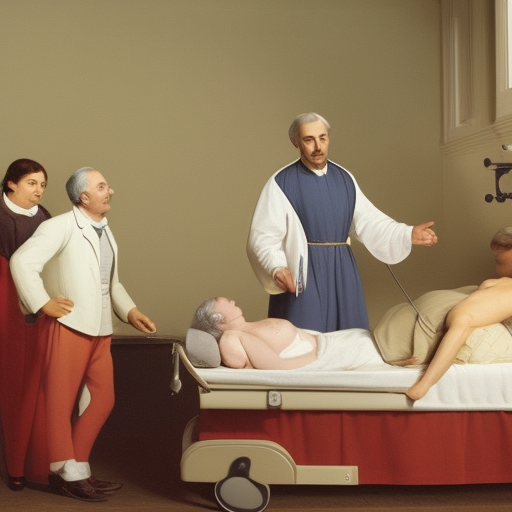How Cognitive Behavioral Therapy (CBT) Can Help You Manage Insomnia and Anxiety

Introduction
Anxiety and insomnia are two common problems that many people face. They can impact our mental and physical health, and can lead to other issues such as depression. While pharmaceutical drugs can help manage these conditions, Cognitive Behavioral Therapy (CBT) is an effective alternative therapy that has gained popularity in recent years.
What is Cognitive Behavioral Therapy (CBT)?


CBT is a type of therapy that helps individuals change their negative thoughts and behaviors. It focuses on the idea that our thoughts, feelings, and behaviors are all interconnected, and that changing one can affect the others. The goal of CBT is to identify negative thought patterns, challenge them, and replace them with positive ones.
How Does CBT Help Someone with Anxiety?

CBT is an effective therapy for anxiety because it helps individuals understand and manage their thoughts and feelings. Anxiety disorder often stems from irrational thoughts and beliefs, and CBT can help individuals identify and challenge these thoughts. CBT also helps individuals develop coping skills to manage their anxiety symptoms.
Why is CBT an Effective Therapy for Anxiety and Sleep Disorders?
CBT is effective for anxiety and sleep disorders because it targets the root cause of these problems. It helps individuals understand their negative thought patterns and behaviors, and provides them with the tools to change them. Additionally, CBT is a long-term solution, unlike pharmaceutical drugs which only provide short-term relief.
How Might a CBT Therapist Achieve Cognitive Change in Someone with Insomnia?

A CBT therapist may help someone with insomnia achieve cognitive change by helping them identify and challenge their negative thoughts and behaviors. For example, if someone believes that they will never be able to fall asleep, the therapist may encourage them to challenge that belief by pointing out times when they were able to fall asleep. The therapist may also teach relaxation techniques and provide sleep hygiene education to help the individual improve their sleep habits.
How Does CBT Manage Anxiety?
CBT manages anxiety by helping individuals change their negative thought patterns and behaviors. It teaches individuals how to challenge irrational thoughts, develop coping skills, and improve their problem-solving abilities. CBT may also include exposure therapy, where individuals gradually expose themselves to anxiety-inducing situations to desensitize themselves to them.
Conclusion
CBT is a highly effective therapy for managing anxiety and sleep disorders. It helps individuals understand their negative thought patterns and behaviors, and provides them with the tools to change them. While pharmaceutical drugs may provide temporary relief, CBT is a long-term solution that can provide lasting benefits. If you are struggling with anxiety or insomnia, consider CBT as a treatment option.
Here are some supplements that can help you:
The Stop Snoring and Sleep Apnea Program — Say goodbye to snoring and hello to restful sleep with The Stop Snoring and Sleep Apnea Program — the proven solution to help you sleep better tonight.
Discover How to Get the Deep Restorative Sleep You Need — Discover the secrets to achieving deep, rejuvenating sleep with our comprehensive guide — Discover How to Get the Deep Restorative Sleep You Need and wake up refreshed every morning.
Natural Insomnia Program — Blue Heron Health News — Tossing and turning at night? The Natural Insomnia Program from Blue Heron Health News provides a natural approach to help you get the restful sleep you need to feel your best.
7 Day Mind Balancing Plan — Transform your life in just 7 days with the powerful Mind Balancing Plan — Awaken your inner potential and attract love and success with ease.
Comments
Post a Comment